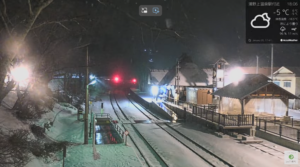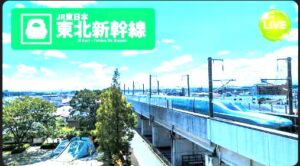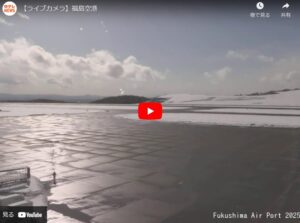Fukushima Prefecture: Rebirth, Resilience, and Natural Beauty
Fukushima Prefecture (福島県, Fukushima-ken) is located in the Tohoku region of Japan’s Honshu island. While the prefecture is known for the 2011 nuclear disaster, it’s also a region of incredible natural beauty, rich history, and resilient people. Fukushima is actively rebuilding and welcomes tourists to experience its unique charm.
Key Features:
- Stunning Natural Landscapes: Fukushima boasts diverse landscapes, including mountains, lakes, coastlines, and hot springs.
- Rich History and Culture: Home to historical castles, traditional festivals, and unique local crafts.
- Delicious Food and Drink: Fukushima is known for its sake, peaches, Kitakata ramen, and other local specialties.
- Warm and Welcoming People: The people of Fukushima are known for their hospitality and resilience.
- Commitment to Safety: Fukushima has made significant efforts to ensure the safety of visitors and residents, with extensive monitoring and testing.
Top Attractions:
- Ouchi-juku: A beautifully preserved post town from the Edo period, with thatched-roof houses lining the main street.
- Tsuruga Castle (Aizuwakamatsu Castle): A reconstructed castle with a distinctive red-tiled roof.
- Lake Inawashiro: Japan’s fourth-largest lake, known for its clear water and beautiful scenery.
- Goshikinuma Ponds (Five Colored Ponds): A collection of volcanic crater lakes with water that changes color depending on the minerals and weather.
- Aquamarine Fukushima: A world-class aquarium showcasing the diversity of marine life.
- Bandai-Asahi National Park: A vast national park offering hiking trails, hot springs, and stunning views of Mount Bandai.
- Kitakata: A town known for its distinctive ramen and well-preserved storehouses (kura).
- Sazaedo Pagoda (Entsuji Temple): A unique wooden pagoda with a double-helix staircase.
- Hanamiyama Park: A hillside park covered in blooming flowers in the spring, especially beautiful for cherry blossoms.
- Shirakawa Komine Castle: A reconstructed castle with impressive stone walls.
Food and Drink:
- Kitakata Ramen: A distinctive type of ramen with thick, flat noodles and a soy sauce-based broth.
- Fukushima Sake: Fukushima is a major sake-producing region, known for its high-quality rice and water.
- Peaches (Momo): Fukushima is famous for its juicy and delicious peaches.
- Kozuyu: A local soup made with dried scallops, vegetables, and mushrooms.
- Ika Ninjin: Squid and carrot seasoned with soy sauce and spices.
- Miharu Takato Zakura: A famous weeping cherry tree in Miharu, Fukushima.
Addressing Concerns about Safety:
- Extensive Monitoring: The Fukushima prefectural government and other organizations conduct extensive radiation monitoring throughout the prefecture.
- Food Safety Testing: Food products from Fukushima are rigorously tested for radiation levels.
- Transparency: Information about radiation levels and safety measures is readily available to the public.
Transportation:
- Fukushima Airport (FKS): Domestic flights from major cities in Japan.
- Tohoku Shinkansen (Bullet Train): Connects Fukushima to Tokyo and other cities in the Tohoku region.
- Local Trains: Connect various towns and cities within Fukushima.
- Highway Buses: Direct bus services from major cities.
- Rental Car: Useful for exploring the more rural areas of Fukushima.
Tips for Visiting:
- Support Local Businesses: By visiting Fukushima, you are directly supporting the local economy and helping the region rebuild.
- Check the Latest Information: Stay informed about the latest safety information and travel advisories.
- Learn About Fukushima’s History: Take the time to learn about the history of Fukushima, including the 2011 disaster.
- Enjoy the Natural Beauty: Explore the stunning landscapes and enjoy the outdoor activities that Fukushima has to offer.
- Be Respectful: Be respectful of the people of Fukushima and their experiences.
In Summary:
Fukushima Prefecture offers a unique and rewarding travel experience. It’s a region of stunning natural beauty, rich history, and resilient people. While acknowledging the past challenges, Fukushima is actively looking towards the future and welcomes visitors to discover its charm and beauty.


